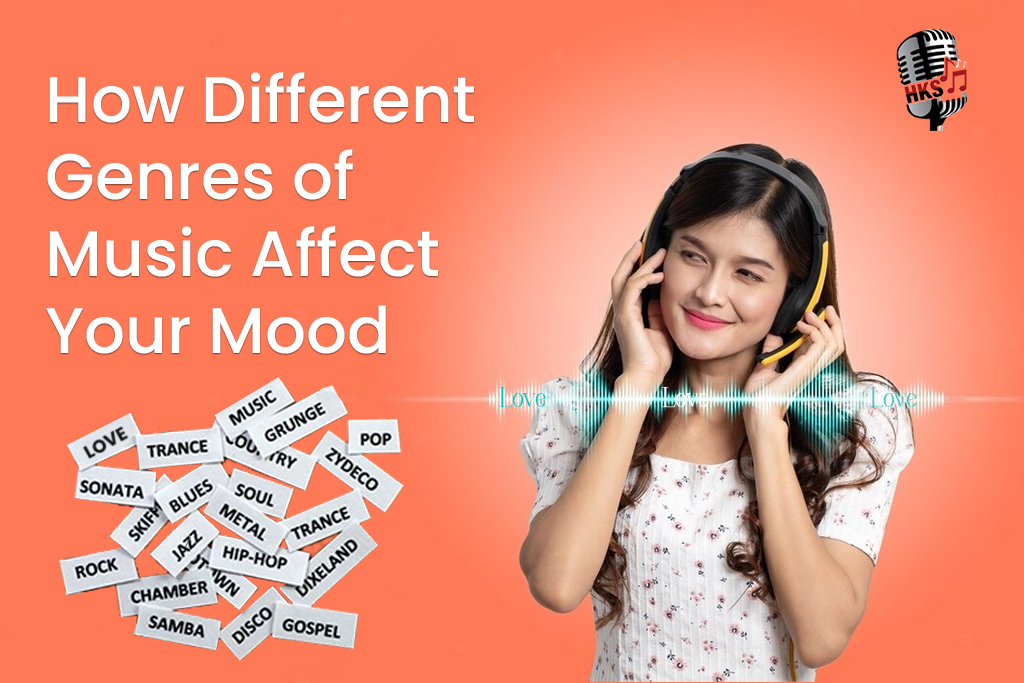Summer Store-Wide Karaoke Sale | 35% Off | USE COUPON CODE - SUNNY35

Music has the power to affect our mood profoundly. Whether it's an upbeat pop song that energizes us or a sad ballad that tears our eyes, the sounds we listen to can significantly impact our emotional state.
Science has shown that music can have short-term and long-term effects on our mood. For example, listening to fast-paced, upbeat music can increase our heart rate, breathing rate, and overall energy levels, while slow, soothing music can help us relax and reduce stress. Alternatives like Karaoke songs also hit the right nerve. It helps that singing songs while the music is playing in the background creates an overall effect that tends to reduce the pressure and tension surfacing. Additionally, music has been shown to have therapeutic benefits for individuals dealing with mental health issues such as depression, anxiety, and Post-Traumatic Stress Disorder (PTSD).
Music can also evoke memories and emotions, transporting us to a specific time or reminding us of someone special. This emotional connection to music can be compelling, helping us process our feelings and comfort us during difficult times.
Overall, the impact of music on our moods and emotions is undeniable. Understanding how different genres and sounds affect us can help us harness the power of music to improve our mental and emotional well-being. Here are some examples of various genres affecting our mood:
- Pop music: Pop music is often upbeat and catchy, making you feel happy and energized. The positive lyrics and fast tempo can improve your mood and motivate you.
- Rock music: Rock music can have many emotions, from high-energy to somber. Fast-paced rock music can make you feel pumped and ready to take on the world, while slower, more emotional ballads can evoke nostalgia or sadness.
- Classical music: Classical music is often associated with relaxation and focus. The soothing melodies and lack of lyrics can help calm your mind and reduce stress.
- Electronic music: Electronic music often features repetitive beats and high-energy sounds. It can be great for working out or partying and can make you feel energized and motivated.
- Hip-hop music: Hip-hop music often features strong beats and lyrics emphasizing empowerment and confidence. Listening to hip-hop can make you feel more confident and motivated to pursue your goals.
- Country music: Country music often tells stories of heartbreak and overcoming adversity. It can be emotional and cathartic, helping you process your emotions and connect with the artist.
Overall, the genre of music you listen to can significantly impact your mood and emotions. Therefore, choosing the right type of music for your current state of mind can help you feel better and improve your overall well-being.
How Does Music Impact an Individual's Perception
- Mood: As we've already discussed, music can significantly impact our mood. Listening to upbeat, positive music may make us feel more optimistic and confident, while sad or melancholy music can make us feel more introspective or reflective. Our mood can also influence our world perception, affecting how we interpret events and interact with others.
- Memory: Music has the power to evoke memories and emotions, which can impact our perception. For example, hearing a song that we associate with a positive memory can make us feel happier and more nostalgic while hearing a song associated with a negative memory can make us feel anxious or upset.
- Cultural influences: The music we listen to can also be influenced by our cultural background and experiences, which can impact our perception. For example, individuals who grow up listening to a specific type of music may have a stronger emotional connection to it and may view other genres of music as less appealing or even "weird."
- Self-expression: Finally, the music we listen to can also be a form of self-expression, impacting our perception. The lyrics and messages conveyed in music can influence how we see ourselves and our place in the world and shape our beliefs and values.
Music can impact personal perception in various ways, influencing our mood, memories, cultural background, and self-expression. Understanding how music impacts our perception can help us use it to enhance our emotional and mental well-being and to connect with others on a deeper level.
How Do These Different Music Genres Connect
While different music genres can sound vastly different, underlying connections can often be discovered. Here are a few ways in which different music genres connect:
- History and cultural influences: Many music genres have evolved, drawing inspiration from earlier genres and cultural influences. For example, rock music has roots in blues and jazz, while hip-hop has roots in funk and soul music.
- Rhythm and melody: While the sounds of different music genres may vary greatly, there are often commonalities in rhythm and melody that connect them. For example, many genres use basic chord progressions, while others use similar rhythms and time signatures.
- Collaboration and fusion: Recently, many artists have fused different music genres to create new sounds and styles. For example, the "trap country" genre combines hip-hop and country music elements, while "Afrobeat" mixes African rhythms with jazz and funk elements.
- Shared themes and emotions: While the sounds of different music genres may differ, they often share common themes and emotions. For example, many genres feature love, loss, and self-discovery lyrics, while others focus on social justice or political issues.
While different music genres may sound different, they often share underlying connections that can be explored and appreciated.
Conclusion
In conclusion, music is a powerful force that can impact our mood, emotions, and personal perception. Different genres of music can have vastly different effects on us, from energizing and motivating us to calming and soothing our minds. Music has also been shown to have therapeutic benefits for individuals struggling with mental health issues. Our personal experiences, memories, and cultural backgrounds can influence how we perceive music and the emotions it evokes within us.
By understanding how music affects us, we can use it to enhance our mental and emotional well-being and to connect with others on a deeper level. Whether we're listening to music alone or sharing it with others, the power of music to bring joy, comfort, and inspiration into our lives is truly remarkable.


.jpg)





Rita Thakur
1 year ago
This blog provides a wealth of information and insights on how different genres of music can affect mood and offers a thought-provoking look at the power of music to shape my emotional experiences.
Preeti Rao
1 year ago
Interesting!!! The impact of music on my mood is a fascinating and complex topic, and this blog highlights some of the ways that different genres can affect our emotional states. However, it's important to note that everyone's response to music is unique, and personal preferences and experiences can play a significant role in how we react to certain styles of music.
Nakul Mehta
11 months ago
What a wonderfully insightful blog post! The power of music to influence our mood and emotions is truly remarkable. It's fascinating to see how different genres and sounds can have such profound effects on our well-being.
Anurita Shukla
11 months ago
music holds immense power in shaping our emotional state, memories, and personal perception. Its ability to evoke emotions and bring people together is truly remarkable.
Gungun Tripathi
10 months ago
An insightful exploration of how music genres influence our mood and perception. Well-written and thought-provoking.